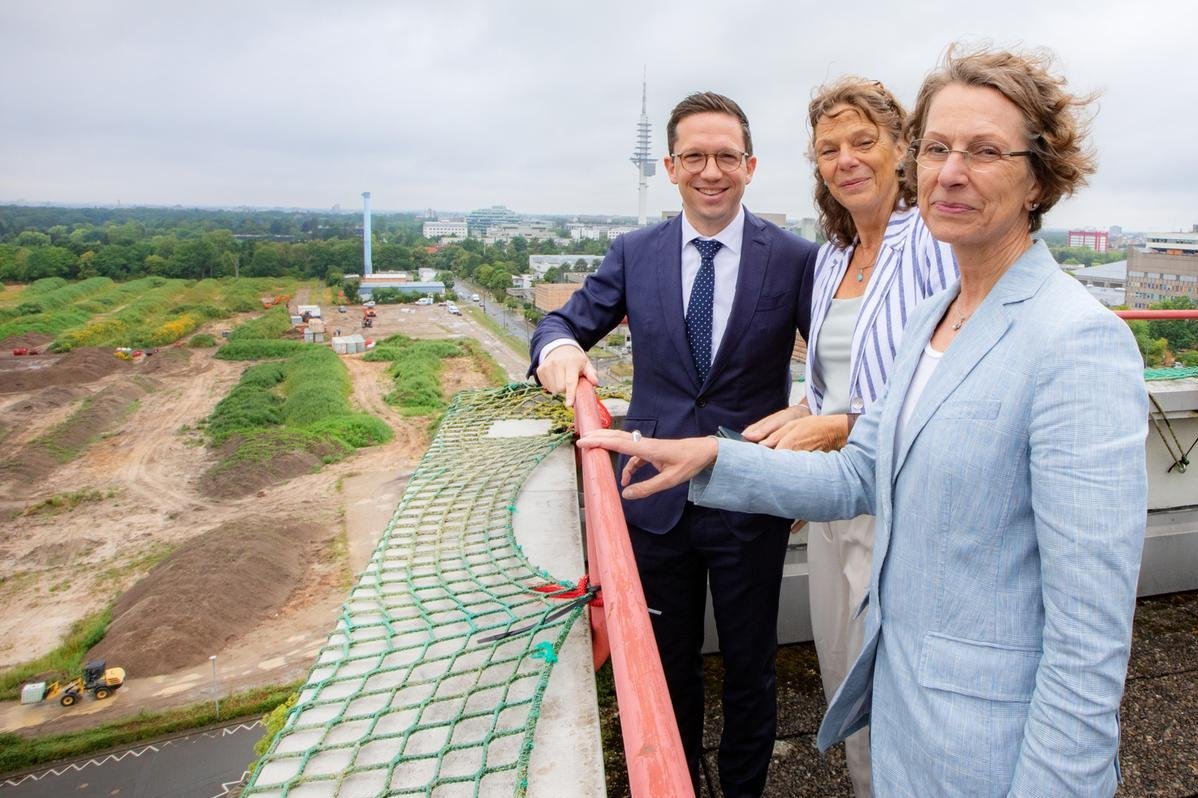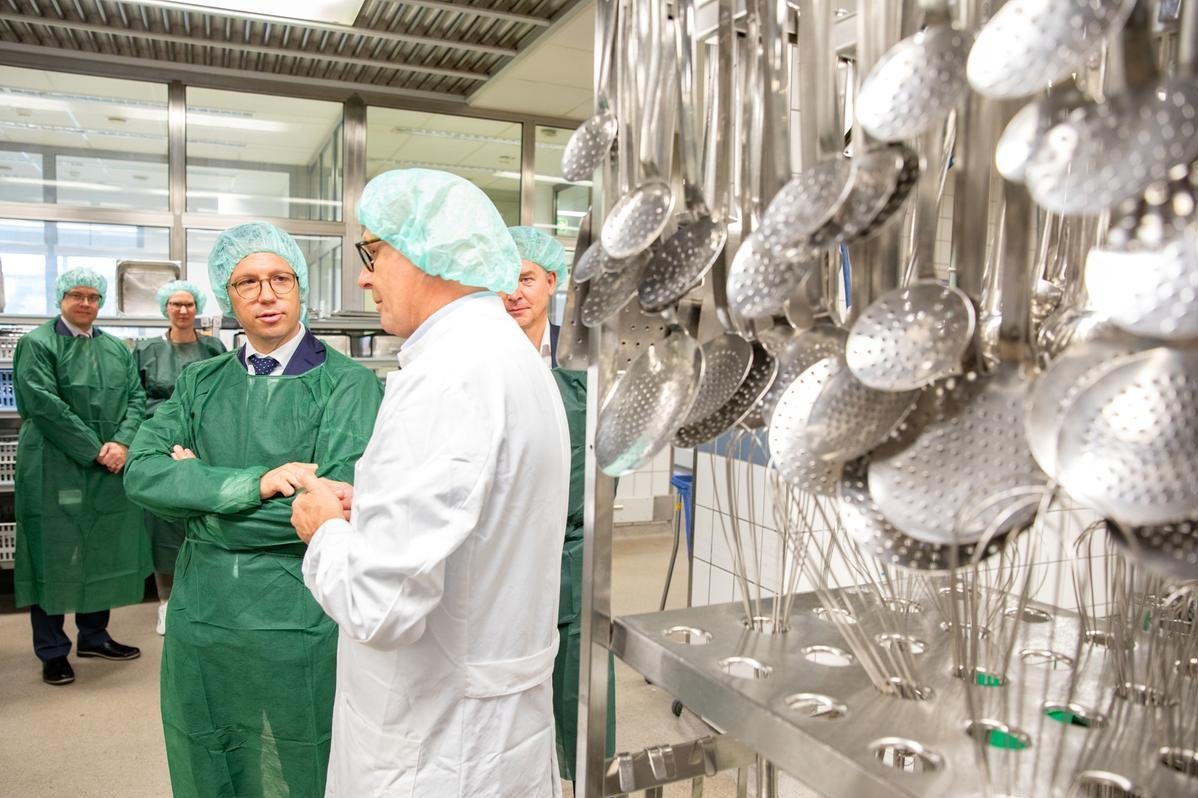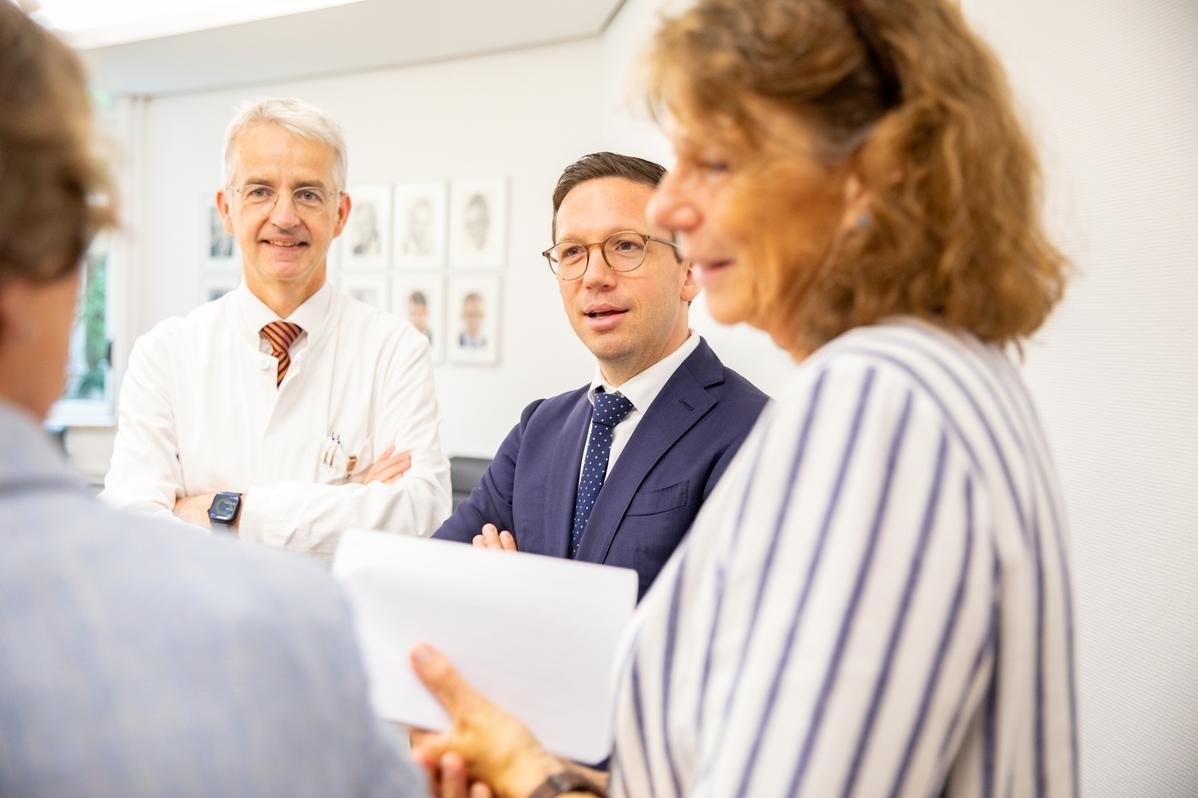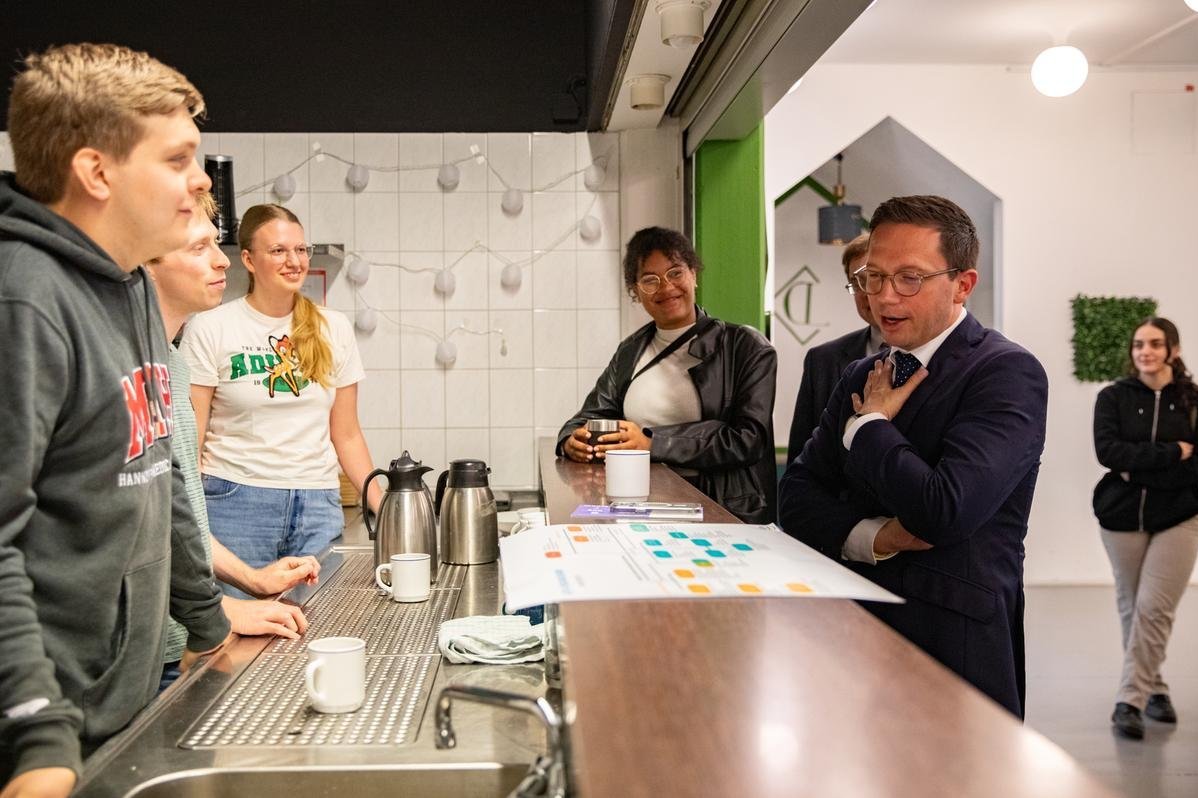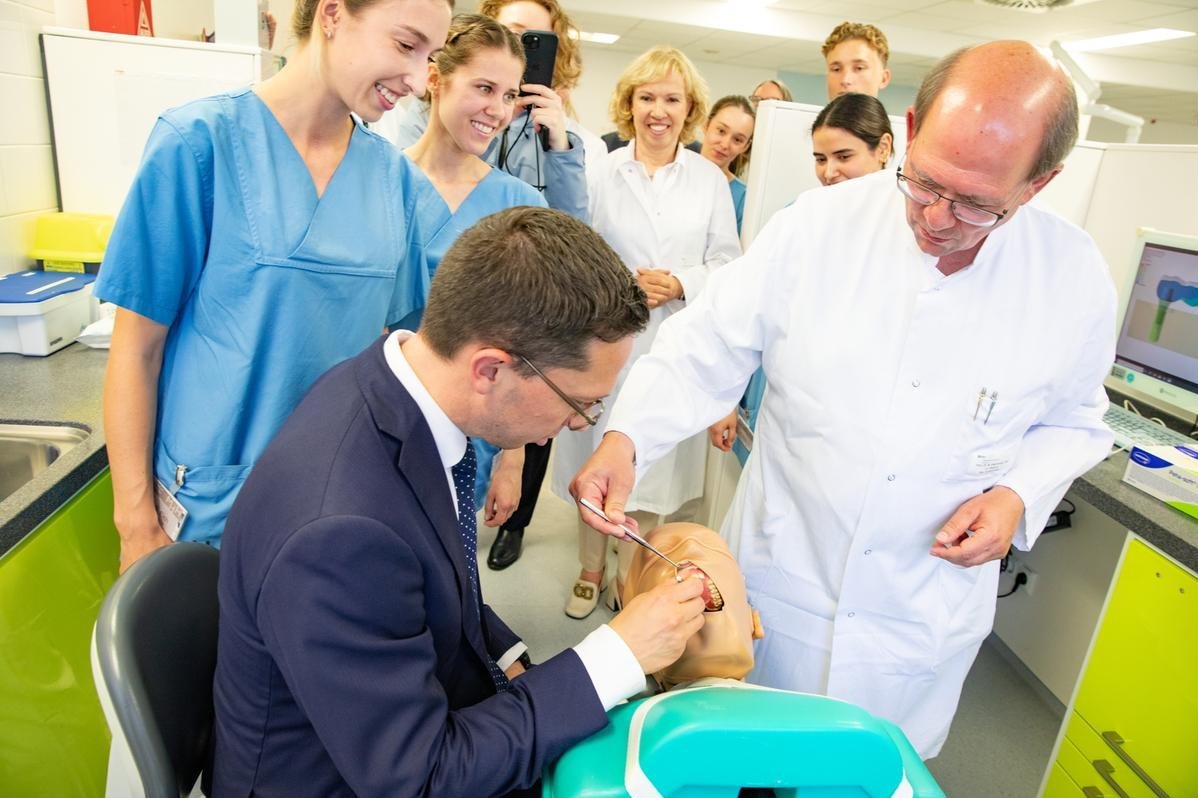A look behind the scenes: MHH shows Lower Saxony's Minister of Science what it does – and where it wants to go.
Lower Saxony's Minister of Science, Falko Mohrs, spent a whole day on campus as part of his summer tour this year and took a look behind the scenes. He went up to the roof terrace of House L, which offers a good overview of the new building site, and down into the underground tunnel system, which is essential for the operation and supply of the clinics. His tour took him through all areas of the MHH: from talking to researchers in English to having coffee with students in the ‘living room’ to chatting with nurses in the children's clinic. In the operating theatre, he witnessed robot-assisted surgery live.
‘On our campus, we combine research, teaching and patient care at the highest level in an integrated model with close links between science and clinical practice,’ explained MHH President Professor Denise Hilfiker-Kleiner. Mohrs emphasised the importance of the MHH as a central pillar of healthcare in Lower Saxony.
ElKi and J6 replacement building coming sooner
In order to keep the campus attractive to the brightest minds in the future, the state is investing in new facilities for cutting-edge medicine. According to the draft budget, 370 million euros will be invested in the second construction phase of the MHH by 2031. This will allow the new Parent-Child Centre (ElKi) and a new research and teaching building to replace J6 to be built earlier than planned.
Well positioned in the scientific landscape
During his visit, the minister also gained an insight into the key figures for the past financial year. The MHH was able to maintain its annual results at the previous year's level – a remarkable achievement given the difficult economic situation facing German hospitals. ‘In 2024, MHH fulfilled its role as a supramaximal care provider and as a research and training centre of scientific excellence, and mastered its social mission,’ said Professor Hilfiker-Kleiner. ‘We owe this to the highly motivated people who work, research, teach and learn here – despite staff shortages and global political uncertainties.’
Well positioned for top research competition
Professor Hilfiker-Kleiner took office on 1 January 2025 and emphasised the MHH's strong position in the scientific landscape. Since May, it has been clear that the RESIST and Hearing4all clusters of excellence will continue to receive funding as part of the federal and state excellence strategy. ‘This is a great success for MHH and enables us to apply as a university of excellence,’ explained the president, who is also responsible for research and teaching.
Lower loss than expected
MHH Vice President Martina Saurin, responsible for financial management and administration, reported an annual deficit of €10.1 million for 2024 – significantly less than the planned €19 million. "The result is caused by the deficit in healthcare. The treatment of highly complex cases is still not adequately reflected in the DRG catalogue," she explained. DRG stands for Diagnosis Related Groups, a billing system for inpatient hospital treatment.
Skills shortage remains a challenge
In addition, the shortage of nursing staff, especially in surgical and anaesthesia care, limited inpatient services. ‘This remains our biggest bottleneck and leads to the closure of planned beds,’ said Saurin. To counteract this and also with a view to the staffing ratios agreed in the relief agreement, the nursing management has developed innovative measures for recruiting staff. More than 50 full-time employees have already been hired this year, and the number of training places is rising steadily.
A further restriction arose in 2024 due to the renovation of six operating theatres. Despite longer operating times for the remaining 30 theatres, it was not possible to compensate for everything. ‘Under these conditions, we consider the loss of 10.1 million euros to be an acceptable result. Our goal is, of course, to return to a balanced result in the medium term,’ emphasised Saurin.
More outpatient treatments
Vice-President Professor Frank Lammert, responsible for patient care, presented the key figures for patient care: in 2024, 53,512 inpatients were treated, slightly more than in the previous year. In the outpatient sector, the number of treatment cases rose by 1.5 per cent to 282,572. The case mix index, which measures the severity of inpatient treatments, remained at a high level of 1.37.
Interdisciplinary exchange in networks
Professor Lammert emphasised the supra-regional importance of the MHH, which is involved in more than 50 bilateral collaborations with other service providers in the region and in more than 80 care networks. The collaborations mainly involve medical consultation and diagnostics, but also the provision of personnel, particularly in the fields of oncology, paediatrics, paediatric surgery and neurology. In nine care networks, the MHH takes on the coordinating tasks and organises interdisciplinary exchange. As an example, Professor Lammert cited the Paediatric Intensive Care Network (PIN), in which 26 hospitals in Lower Saxony and Bremen are involved.
Further information and the 2024 annual report: https://www.mhh.de/die-mhh-in-zahlen/
Text: Inka Burow
